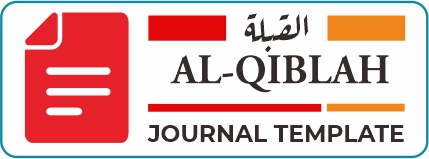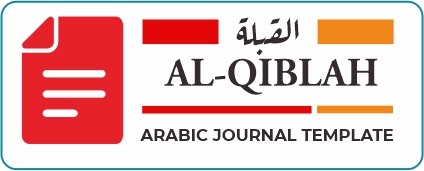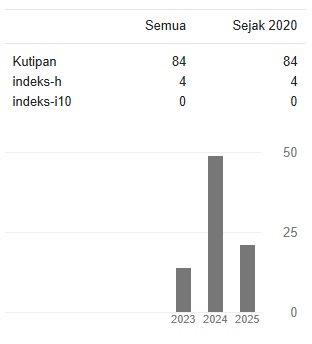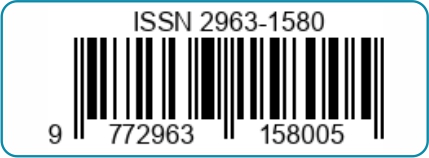Strategi Penguatan Manajemen Rantai Pasok Halal di Era Digitalisasi:Pendekatan Sharia Value Chain
Strengthening Strategies for Halal Supply Chain Management in the Digitalization Era: A Sharia Value Chain Approach
DOI:
https://doi.org/10.36701/al-qiblah.v4i5.2654Keywords:
Halal Supply Chain, Digitalization, Sharia Value Chain, Islamic Business Ethics, Maqāṣid al-Sharī‘ah.Abstract
This study aims to analyze strategies for strengthening halal supply chain management in the digital era using the Sharia Value Chain (SVC) approach. The focus lies on transparency, data integrity, and distribution speed within the context of digital transformation. The research employs a qualitative method with a descriptive-analytical approach based on literature, reinforced by a normative framework through maqāṣid al-sharī‘ah. The findings reveal that key challenges include the lack of integrated digital systems across halal institutions, limited digital literacy among business actors, and weak halal verification across supply chain stages. The SVC provides a strategic solution by embedding values of honesty, responsibility, and sustainability through the implementation of maqāṣid principles such as hifẓ al-dīn and hifẓ al-māl. The adoption of technologies such as blockchain, IoT, and cloud computing enhances the transparency and accountability of the halal system. This research contributes to the development of a halal supply chain management model rooted in Islamic values and supports national halal industry policies toward an efficient, ethical, and digital system.
Downloads
References
Ascarya. Designing Islamic Financial Architecture for Stability: Case of Indonesia. Jakarta: Bank Indonesia Institute, 2016.
Ascarya. The Development of Halal Value Chain in Indonesia. Jakarta: Bank Indonesia, 2016.
Asri, K. H., & Ilyas, A. (2022). Halal Value Chain sebagai Strategi Pengembangan Industri Halal dalam Menyongsong Era Society 5.0. Jurnal Ilmu dan Industri Halal, 3(2), 36–46.
Beekun, R. I., & Badawi, J. A., Leadership: An Islamic Perspective. Kuala Lumpur: Amana Publications, 2005.
Chapra, M.U. The Islamic Vision of Development in the Light of Maqasid al-Shari‘ah. London: International Institute of Islamic Thought (IIIT), 2008.
Chiquita, C. (2023). Digitalisasi Halal dan Tantangan Rantai Pasok di Indonesia. Jurnal Halal Logistik, 12(1), 105–112.
Chopra, S., & Meindl, P., Supply Chain Management: Strategy, Planning, and Operation (New Jersey: Pearson Education, 2016), h. 25.
Christopher, M. (2011). Logistics and Supply Chain Management. Harlow: Pearson Education, ), h. 17.
Departemen Agama RI, Al-Qur’an dan Terjemahnya (Jakarta: Lajnah Pentashihan Mushaf Al-Qur’an, 2019), h. 600.
Dusuki, A. W., & Abdullah, N. I. (2007). Maqasid al-Shariah, Maslahah, and Corporate Social Responsibility. The American Journal of Islamic Social Sciences, 24(1), 25–45.
Dusuki, A. W., & Abozaid, A. (2007). A Critical Appraisal of the Challenges of Realizing Maqasid al-Shari’ah in Islamic Banking and Finance. IIUM Journal of Economics and Management, 15(2), 143–165.
Handfield, R. B., & Nichols, E. L., Introduction to Supply Chain Management (New Jersey: Prentice Hall, 1999), h. 3.
Hassan, M. K. (2020). Islamic Marketing and Halal Supply Chain: A Growing Global Opportunity. Journal of Islamic Business Ethics, 3(2), 111–120.
Ibn Ḥanbal, Ahmad. Musnad Aḥmad ibn Ḥanbal. Bayrūt: Mu’assasat al-Risālah, 1999.
Izzi, F. M., Rahmat, M. A., & Nurrohman, A. (2023). Digitalisasi Industri Halal Melalui Blockchain: Solusi Transparansi dan Validasi Informasi. Al-Iqtishad: Journal of Islamic Economics, 15(1), 15–30.
Izzi, M. I., Rahman, A., & Aziz, M. R. (2023). Halal Blockchain for Consumer Confidence: A Conceptual Framework. Journal of Islamic Marketing, 14(2), 19–27.
Kamaruddin, A. (2022). Urgensi Regulasi Teknologi Deepfake dalam Perspektif Perlindungan Konsumen Muslim. Jurnal Hukum dan Teknologi Syariah, 3(1), 105–112.
Kamaruddin, R. (2022). Integrasi Nilai Syariah dalam Logistik Halal. Jurnal Ekonomi Islam, 13(3), 127–134.
Mentzer, J. T., DeWitt, W., Keebler, J. S., Min, S., Nix, N. W., Smith, C. D., & Zacharia, Z. G. (2001). Defining supply chain management. Journal of Business Logistics, 22(2), 1–25.
Mohammed, R., & Taib, M. (2015). Logistics Challenges in Halal Certification. Halal Supply Journal, 5(3), 283–293.
Moleong, L. J., Metodologi Penelitian Kualitatif. Bandung: PT Remaja Rosdakarya, 2019.
al‑Naysābūrī, Muslim ibn al‑Ḥajjāj al‑Qushayrī. Ṣaḥīḥ Muslim, Kitāb al‑Īmān, Bāb Tahrīm al‑Ghishsh wa Bayānuhu, Jilid 1. Bayrūt: Dār Iḥyā’ al‑Turāth al‑‘Arabī, 2001.
Noeng, Muhadir, Metodologi Penelitian Kualitatif. Yogyakarta: Rake Sarasin, 2000.
Nugroho, H. (2017). Implementasi Sistem Logistik Halal di Indonesia: Tantangan dan Solusi. Jurnal Logistik Syariah, 1(2), 80–90.
Ramdhani, F. (2022). Digitalisasi dan Penguatan Industri Halal Nasional. Jurnal Ekonomi Syariah dan Teknologi, 4(2), 115–135.
Seuring, S., & Müller, M. (2008). From a literature review to a conceptual framework for sustainable supply chain management. Journal of Cleaner Production, 16(15), 1699–1710.
Siddiqi, M. Nejatullah. Dialogue in Islamic Economics. Leicester: The Islamic Foundation, 2004.
Sugiyono. Metode Penelitian Kualitatif, Kuantitatif dan R&D. Bandung: Alfabeta, 2013.
Supply Chain Council. (2012). SCOR: Supply Chain Operations Reference Model. Washington, D.C.
Talib, M. S. A., Ali, M. H., & Ariffin, A. (2021). Halal Logistics and Supply Chain Management: Principles and Practices. Journal of Islamic Marketing, 12(1), 41–55.
Talib, M. S. A., Zulfakar, M. H., & Abdul Hamid, A. B. (2021). Halal Supply Chain Critical Success Factors: A Literature Review. Journal of Islamic Marketing, 12(1), 42–60.
Talib, M. S. A., Zulfakar, M. H., & Chin, T. A. (2021). A Review of Halal Logistics and Sharia Value Chain. Journal of Islamic Marketing, 12(1), 40–52.
al-Tirmidzī, Muḥammad ibn ʿĪsā. Sunan al-Tirmidzī, Kitāb al-Buyū‘, Bāb Mā Jā’a fī al-Tujjār, no. 1209. Beirut: Dār al-Gharb al-Islāmī, 1998.
Turban, E., Volonino, L., & Wood, G. (2013). Information Technology for Management. New Jersey: John Wiley & Sons. ), h. 311.
Vaccari, C., & Chadwick, A. (2020). Deepfakes and Disinformation: Exploring the Impact on Public Trust and Policy. New Media & Society, 22(5), 890–911.
Zed, M. Metode Penelitian Kepustakaan. Jakarta: Yayasan Obor Indonesia, 2004.
al-Zuhaili, Wahabah. Tafsir al-Munir fi al-‘Aqidah wa al-Shari‘ah wa al-Manhaj. Damaskus: Dar al-Fikr, 1989.
Zulfakar, M. H., Anuar, M. M., & Talib, M. S. A. (2018). Halal Logistics and Its Implementation. Jurnal Logistik Islam, 10(2), 55–67.
Zulfakar, M. H., Talib, M. S. A., & Hamid, A. B. A. (2018). Halal Logistics: Its Relevance, Issues and Challenges. The Journal of Islamic Logistics, 3(2), 50–65.
Downloads
Published
Issue
Section
License
Copyright (c) 2025 Ihwan Wahid Minu, Siradjuddin, Murtiadi Awaluddin

This work is licensed under a Creative Commons Attribution-NonCommercial-ShareAlike 4.0 International License.

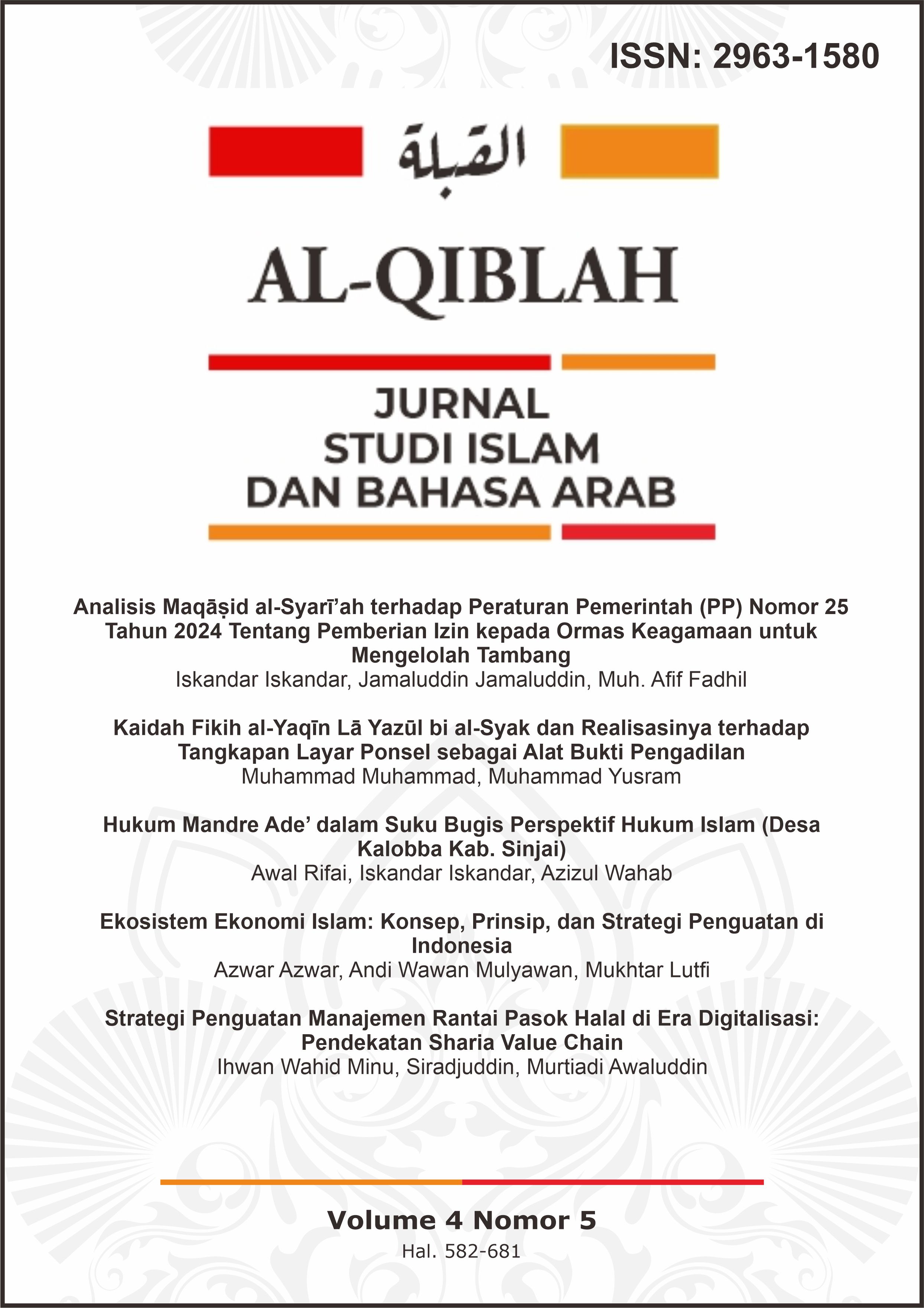

 FOCUS AND SCOPE
FOCUS AND SCOPE EDITORIAL TEAM
EDITORIAL TEAM




